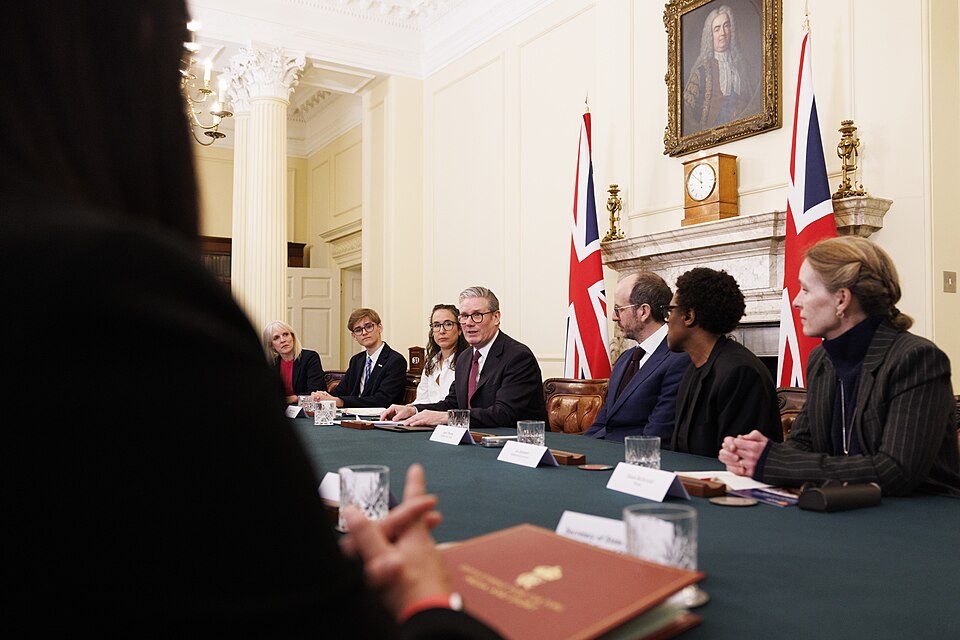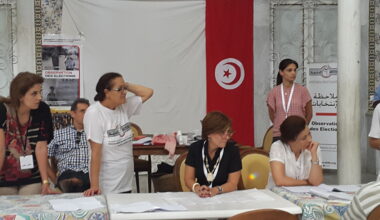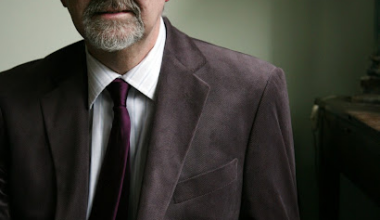Kemi Badenoch, leader of the Conservative Party, was recently confronted by the presenters of BBC Breakfast in a compelling discussion about the Netflix show Adolescence. This gripping show, which tells the harrowing story of a teenage boy accused of murdering a fellow student, seems to have become a lightning rod for political discourse in Britain.
It has sparked extensive conversations in Parliament on crucial issues such as relationship education and incel (‘involuntary celibate’) culture. In a bold move, Prime Minister Keir Starmer has publicly advocated for screening this series in schools, asserting that it could serve as an educational tool. He even invited the creators of the show to 10 Downing Street for a meeting to gain insight into their perspectives and motivations.
However, it is profoundly strange that the Labour government appears to believe that the serious and multifaceted issue of violence against women and girls can be effectively addressed by showing a fictional series in schools. By inviting the creator of a dramatised narrative to discuss these complex societal challenges, they seem to suggest that a simplistic approach could suffice. This notion not only lacks depth but also diminishes the gravity of the real issues at hand.

Badenoch was criticised on BBC Breakfast for admitting that she hadn’t watched Adolescence. But she made a compelling argument: just as one doesn’t have to be a fan of Casualty to understand the NHS, one doesn’t have to watch Adolescence to understand violence against women and girls. Her argument contains an important point: that engaging in informed, substantial discussions about societal issues should not depend on consuming fictional entertainment but rather on a genuine understanding of the real-world complexities at play.
In all honesty, the BBC Breakfast segment felt more like an inquisition than a discussion, with the presenters consistently dismissing Badenoch’s well-articulated arguments. They failed to recognise that Adolescence, though a popular and creative fictional work, does not accurately reflect the harsh and pressing realities of misogyny and violence that women and girls face every day. In a world increasingly influenced by toxic misogynistic beliefs, which amplify harmful stereotypes and foster a culture of disdain towards women, relying on a fictional narrative as a reference point for addressing these significant societal issues is ineffective and futile.
When misogynistic beliefs and practices are overtly propagated under the guise of religion or culture, for example, it becomes alarmingly common for British politicians to avert their gaze. As the National Secular Society (NSS) has recently put it: ‘A popular Netflix show has politicians astir over young men being exposed to misogynistic ideology. But they have a blind spot when it comes to misogyny promoted by religious charities’.
A noteworthy case discussed by the NSS is Muhammadi Masjid, located in Bradford, which operates as a registered charity. Last year, the mosque drew widespread criticism for a sermon released on YouTube. In this sermon, speaker Muhammad Huzaifah harshly asserted that any woman who ‘wears makeup’, ‘beautifies herself’, or ‘allows everybody else to look at her’ is considered ‘destroyed’ according to Islamic principles.
In another alarming instance given by the NSS, An-Noor Masjid in Birmingham published a sermon last year which stated that if a woman repeatedly refuses ‘intercourse’, her husband is ‘allowed to hit’ and shake her.
These are just two of many examples of religious charities promoting misogyny. Others include Christian and Jewish organisations. These groups often benefit from public funding and have minimal or no tax obligations, allowing them to perpetuate harmful beliefs and attitudes toward women without consequence. By subsidising such organisations, we, unwittingly or inadvertently, support a system that prioritises outdated ideologies over women’s rights. Why are these charities allowed to get away with it? Because they promote the charitable purpose of ‘the advancement of religion’. The examples given above are only indicative of deeper and broader problems of misogyny within some British Muslim communities, however.
The sheer negligence displayed by politicians regarding this issue is both staggering and unacceptable. It is profoundly concerning to observe how the insidious normalisation of religious misogyny has permeated our public discourse. This troubling trend not only undermines the dignity of women but also fosters an environment where discriminatory beliefs can thrive unchecked, threatening the very foundations of equality and respect in our society.
Furthermore, the overwhelming pressure to show respect to religious ideologies often overshadows the need for critical dialogue and accountability. This excessive emphasis on maintaining respect for religious beliefs creates an environment in which dissent is not merely discouraged but effectively silenced.
Those courageous enough to challenge these harmful narratives frequently find themselves unjustly branded with accusations of ‘Islamophobia’.
It is also important to note that some naive commentators have confused incel culture with the phenomenon of religious misogyny, a conflation that oversimplifies a complex issue. To effectively confront the pervasive and deeply rooted misogyny found within many religious discourses, we must clearly distinguish between incel culture and the ideological framework of religious misogyny. Incel culture is characterised by frustrations and resentments that often arise from feelings of social isolation and rejection. These feelings can manifest in dangerous ways, including anger and, in some cases, violent actions directed at those perceived as gatekeeping affection and intimacy.
On the other hand, religious misogyny is a more systematic and insidious form of sexism wherein misogynistic attitudes are embedded within religious texts, teachings, and practices. This ideology often seeks validation from revered scriptures and claims a form of divine endorsement, portraying itself as a sacred belief system.
Unlike incel culture, which can be seen as a chaotic collection of toxic social beliefs and behaviours often encouraged in anonymous online forums, religious misogyny is taught in a structured manner from an early age, influencing followers with an authoritative voice that lends it a chilling legitimacy. By grasping these distinctions, a more nuanced understanding of both incel culture and religious misogyny can allow us to come up with a targeted and thus more effective approach to addressing specific forms of misogyny in different contexts.
It is essential for our politicians and media commentators to fully grasp these vital distinctions if they wish to protect women and girls from oppression and violence. We need to move past simply responding to issues as they arise; instead, we must develop a comprehensive strategy that thoughtfully addresses the multifaceted social dynamics involved in different forms of misogyny.
Binge-watching a Netflix series while lounging on the sofa might be a nice way to relax, but it can also be a careless approach to addressing complex issues that require in-depth discussions. These discussions are not just academic—they echo the lived experiences of countless individuals grappling with the impact of rigid misogynistic traditions and societal norms. Therefore, it is essential to question religious practices and beliefs in order to confront the widespread misogyny found in more conservative segments of British Muslim communities.
Let’s acknowledge Kemi Badenoch for bravely confronting those BBC Breakfast presenters. It is crucial to understand that watching films on television is not the responsibility of our politicians. The true role of our politicians is to engage with people and confront the realities we face. It’s ridiculous that our Prime Minister chose to unwind on a comfortable sofa and watch a Netflix series with his family instead of addressing the pressing realities on the ground. He appears to believe that screening a fictional film in schools will effectively tackle the alarming rates of violence against women and girls.
Prime Minister, if you are serious about making a difference, it’s time to step out of your comfort zone and confront these critical issues head-on. Your leadership requires more than entertainment; it demands action.
Related reading
Faith and charity law: time for a rethink, by Megan Manson
The hijab is the wrong symbol to represent women, by Khadija Khan
It is time to recognize sex apartheid as a crime against humanity, by Maryam Namazie
The problem with ‘Islamophobia’, by Mark Lilly








1 comment
just out of interest which breakfast presenter was this? its a rarity they confront anything let alone such an over principled stance by C rate presenters/politicians.
Your email address will not be published. Comments are subject to our Community Guidelines. Required fields are marked *
Donate